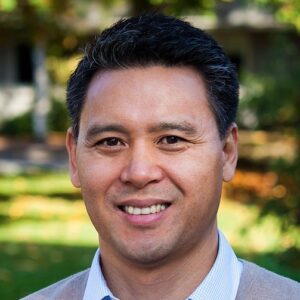
When Work Disappears: Thoughts on Keeping Vocation Alive when Our Professional Work Closes
I came across a book during graduate work whose title still haunts me: When Work Disappears by William Julius Wilson (Alfred A. Knopf, 1996). The book is not without controversy as it argues how poverty came to exist in west Chicago because of manufacturing company flight. I am not writing, however, to discuss this argument or its controversy. I am writing about the title, which I cannot shake. It feels all too real; it is all too real for so many of us in theological higher education.
This morning, I had a conversation with a good friend of mine, a colleague at another institution with whom I have walked during the last fifteen years in this field. They, unlike many aspiring and newly-minted PhDs, have full-time work. But they, like many PhDs already in the field, face the harrowing prospect of needing to find work elsewhere if they are going to make a living wage. It feels like a sucker punch to the gut when you confront the likelihood of needing to find work in a field that seems to get smaller by the year. You have trained numerous years only to be left facing the reality that full-time work is disappearing, and you wonder if a vocation can be had in a profession and field such as ours.
I have more questions and curiosities than I do answers or proposals. Undoubtedly, you are reading this as I am writing it, with wheels turning about different macro-analyses and complexities to explain this upheaval: decreasing involvement in organized religion, generational attitudes towards the cost-value of (theological) higher education, the return on investment of this kind of education in future employment, and so on. This is not a tidy blog post that looks for answers or surefire solutions to very legitimate and far-reaching concerns. The primary intent of raising this topic is that I want to name publicly what many of us feel privately or at least discuss in smaller circles with trusted people. Our collective grieving is happening whether we widely acknowledge it in our respective learning communities, institutions, and guilds or not.
Of course, there are theological academic institutions which will survive all of this. The financial wealth of some institutions, coupled with the social investment and concern for keeping these institutions alive, will help them weather the changes in the field. Innovative curriculum and flexible pedagogy might even stave off closure. These are promising trajectories.
I wonder, though, how educators collectively, and individually, continue to keep vocation alive when they see their work disappear. Let me put it directly: When you lose (or are on the verge of losing) your faculty position or see colleagues lose theirs, what does this do to your vocation?
There are many reasons why we get into the profession of teaching, mostly noble ones. I imagine that, at the heart, we get into teaching and become educators because of vocation. There is something in us that comes alive when we make an impact on the world and people through our teaching and scholarship. What then do we make of our vocation when our professional opportunities close? I do not ask this from afar. I experienced the disheartening reality of a school closure.
I have worked on a vocational statement for the last thirteen years. I come back to it every so often as a probing and aspirational exercise. I ask whether this statement continues to describe who I am (probing), while I also look to the statement to guide me in who I am becoming (aspirational). After many revisions and wording changes, the commitment remains the same: my center, call, vocation, and fuel, is to help people live flourishingly. This is more challenging in today’s landscape because work is disappearing.
I am adjusting as many of you are too. Checking in with a colleague, serving as a reference for someone doing all they can to secure a position, and having truthful conversations with colleagues as to why you voted to close the degree program they oversee—these are ways to currently express our vocation. There are other small and significant ways you and I keep vocation going. These are not novel ideas, but they take on a deeper quality because of the severe reality that collectively faces us. And if there is a shared vocation in theological higher education today when work disappears, perhaps this is it: that amid our vocation to teach and form is also a vocation to grieve loss in our field and to humanize people who make up and (hope to) carry out the field.
Thank you for this reflection on an important issue and set of circumstances. I am sharing this out with the members of NetVUE (Network for Vocation in Undergraduate Education). One of my former colleagues at Monmouth College wrote about her experiences in grieving a job in this piece at Vocation Matters:
https://vocationmatters.org/2020/08/20/discontinued-our-fragile-vocations/
amazing thought
Thank you for raising these. It’s good to read what you’re doing and have been up to around the aspirational and probing teaching (and statements). Peace to you.
This is so real. I just had a long conversation with a former student whose job was suddenly eliminated. I grieve. I am bewildered. I don’t know what to say. Thanks for naming the “severe reality that collectively faces us.”